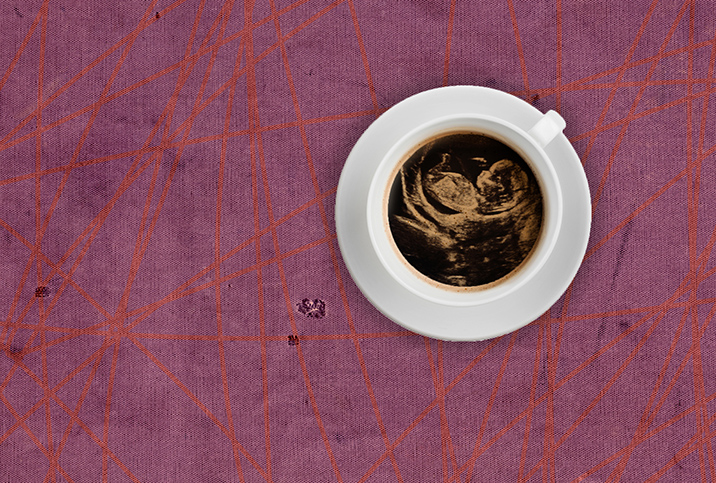Even Small Amounts of Alcohol Can Alter a Baby's Brain, Study Finds

Drinking alcohol during pregnancy—even the occasional glass of wine—can change the brain structure of a developing fetus.
That's according to a new study from the Department of Radiology at the Medical University of Vienna. The research was presented in November at the 2022 meeting of the Radiological Society of North America (RSNA).
A team of researchers—led by Gregor Kasprian, M.D., Marlene Stuempflen, M.D., and Patric Kienast, M.D.—analyzed brain MRI scans of 24 fetuses that had been exposed to alcohol during pregnancy. To track alcohol exposure, the team relied on answers from anonymous, standardized questionnaires completed by pregnant people.
Out of the study participants, 17 of the 24 reported drinking alcohol infrequently, or less than one alcoholic drink per week on average. Three participants reported consuming one to three drinks per week, and two reported consuming four to six drinks per week. One study participant reported drinking an average of 14 drinks per week, and six reported at least one binge drinking episode, or more than four drinks in one sitting, during their pregnancy.
In fetuses whose mothers drank during pregnancy, the fetal maturation score was significantly lower than in healthy controls, and the right superior temporal sulcus (STS) was shallower. The STS is known to be involved in important social processes, including language development and social cognition.
According to Kienast, the researchers found these structural changes in fetuses whose mothers drank only minimal levels of alcohol or less than a drink per week. Considering the sizable impact of even low amounts of alcohol, Kienast called the results "remarkable."
How alcohol impacts the developing brain
According to Kienast, scientists have long known that fetuses exposed to alcohol during pregnancy are at risk of developing behavioral and cognitive impairments.
"In between 1 and 5 percent of all pregnancies, clinical symptoms become apparent in the context of fetal alcohol spectrum disorders [FASD]," Kienast said. "In childhood, [FASD] symptoms can vary widely in severity, ranging from mild learning disabilities or psychiatric disorders to—thankfully, more rarely—neurological disorders such as epilepsy or craniofacial abnormalities.
"The exact molecular biological mechanisms that lead to the structural changes in fetal brains are still unknown," he said. "Alcohol passes the placental barrier, then enters the fetal blood circulation, where it passes the fetal blood-brain barrier. It is likely that the fetal neurons are particularly vulnerable to alcohol and its degradation products and that the fetal liver is still far from being fully developed to be able to adequately counteract alcohol in a compensatory manner."
Kienast urged pregnant people to avoid alcohol consumption in any amount.
"Alcohol is the biggest preventable risk factor during pregnancy," Kienast said.
"And if you have drunk alcohol during pregnancy, please talk to your doctors about it, even though it is often a taboo subject," he added. "Your doctor can then pay special attention to possible specific changes in your unborn child."


















